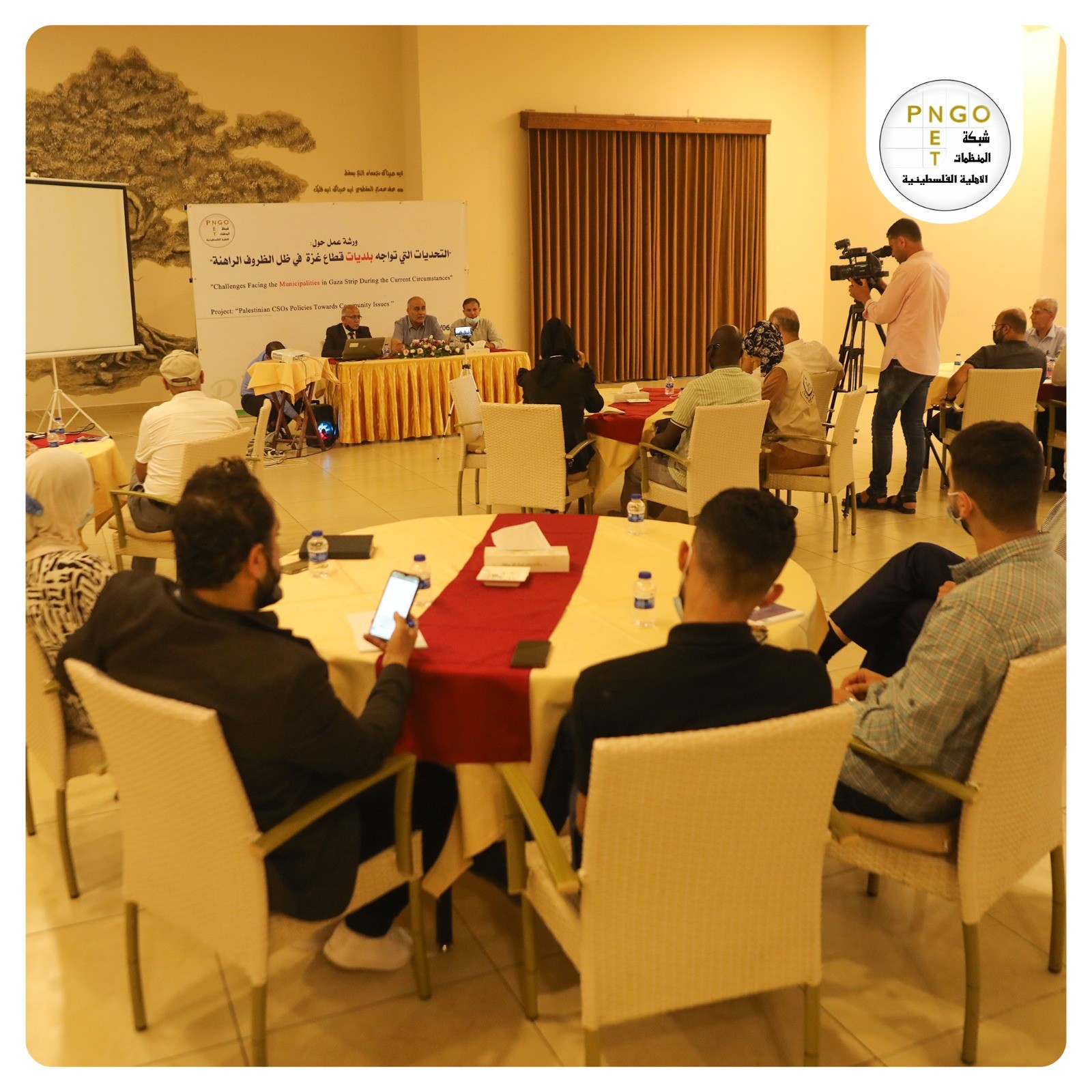During a PNGO Workshop:
Civil and human rights organizations' representatives have stressed the need to strengthen partnerships between municipalities in the Gaza Strip and civil society organizations. This move is aimed to face existing challenges, enhance citizen's resilience, and ensure the continuity of municipal services.
This came during a workshop on "Challenges Facing the Municipalities of the Gaza Strip Under the Current Circumstances" organized by the Palestinian NGOs Network (PNGO), where the role of the municipalities was admired and praised. Dr. Yahya Al-Sarraj, Gaza Mayor, attended the workshop with a large number of NGOs and human rights organizations representatives along with a number of journalists.
Amjad Al-Shawa, PNGO director, mentioned in his opening speech the important role played by the municipalities and local councils in the Gaza Strip during and after the aggression on the Gaza Strip.
Al-Shawa pointed out that the Israeli targeting of the infrastructure was deliberate; nevertheless, this was met by great municipal efforts to repair the damages in light of the poor logistical and material capabilities resulting from the continuous Israeli siege for more than 15 years.
He continued to assert the importance of partnership between civil society sectors and municipalities in encountering challenges in a way that enhances the steadfastness of the people and advances the role of municipalities and the services they provide at the same time.
In turn, Dr. Yahya Al-Sarraj, Gaza mayor, emphasized the importance of achieving joint action between municipalities and society sectors on the basis of transparency, clarity, honesty, good decision-making, and bearing responsibility for decisions.
Al-Sarraj addressed the deliberate targeting of municipal facilities, the piling mountains of garbage, and the scarcity of fuel as the most prominent challenges during the latest aggression on Gaza. The difficulty of accessing facilities and the lack of reconstruction equipment are also amongst the challenges mentioned.
He noted the municipality exerted great efforts to ensure the continued water services in good quality and quantity. In addition, the municipality paid close attention to the sewage system to save the people from any health disasters on the roads or on the seashore. Repairing the damaged streets was, according to Al-Sarraj, the main focus of the work done although it requires great time and funding.
Therefore, Al-Sarraj called on citizens and all sectors of society to support the municipality and its efforts to ensure the continuation of services, especially after the aggression, which depleted the municipality's financial resources.
Almost 14% of citizens are committed to paying for municipal services, according to Al-Sarraj, explaining that the average dues on the subscriber in Gaza City are more than 8000 shekels.
Furthermore, he referred to the campaign launched at the beginning of the current month aimed at supporting citizens financially. This campaign, as stated by the officials, is the largest in 15 years and includes discounts up to 50% on what people pay as well as on their dues.
The bill for the month of May, which was issued at the beginning of the current month and distributed to subscribers, is a normal bill, Al-Sarraj said, explaining that the municipality used to divide the value of property and house fees “occupancy” into three different cycles; however, it chose to include it once this month to allow citizens to benefit from the discount on the bill, which amounts to 50% of its value.
Moreover, he indicated that adding the property and home tax was the only expectation this month. Usually, this tax is divided over several months, but the municipality chose to include it in June's bill for people to benefit from the 50% discount.
Many questions were raised during the meeting about occupancy fees and the need to balance the needs of the municipality with the conditions of citizens in light of poverty, unemployment, and difficult economic conditions, which were worsened after the last Israeli aggression on Gaza. The meeting concluded with the agreement regarding the need for coordination between the municipality and sectors of society.




